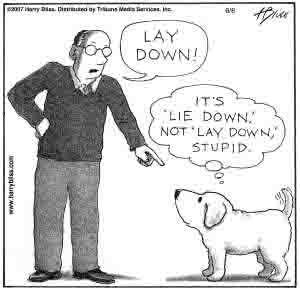 |
| Studying subordinators, subordinate clauses, and subordinate clause openers... |
Did you memorize subordinators, so you can write with subordinate clause openers properly? If not, you can find the post on there here.
Once you memorize subordinators, you are ready to write with subordinate clauses. Specific to this lesson, you will be ready to write subordinate clause openers (subordinate clauses that are added to the beginnings of sentences).
As far as a subordinate clause is concerned, it contains a subordinator and a subject and a verb.
Subordinator + Subject + Verb
When she drove,
As he said,
After she left,
When they arrived,
Because he smiled,
Did you notice anything about those subordinate clauses? If you noticed that each one would be a sentence if the subordinator were removed, you are correct!
A subordinate clause is a sentence (subject + verb) that has a subordinator at the beginning of it!
Sentence: She drove.
Subordinate clause: When she drove,
Sentence: He said.
Subordinate clause: As he said,
Sentence: She left.
Subordinate clause: After she left,
Sentence: They arrived.
Subordinate clause: When they arrived,
Sentence: He smiled.
Subordinate clause: Because he smiled,
So....a subordinate clause is a sentence (independent clause-can stand
alone) that has a subordinator added to the beginning of it (which makes it a dependent clause-is dependent upon something else in order to be used {has to have a real sentence put with it in order to be used}).
Think of subordinate clauses by either of their two names:
1. Subordinate clause--subordinate to the rest of the sentence
2. Dependent clause--dependent on something else to go with it (a real sentence/independent clause) in order to be used





